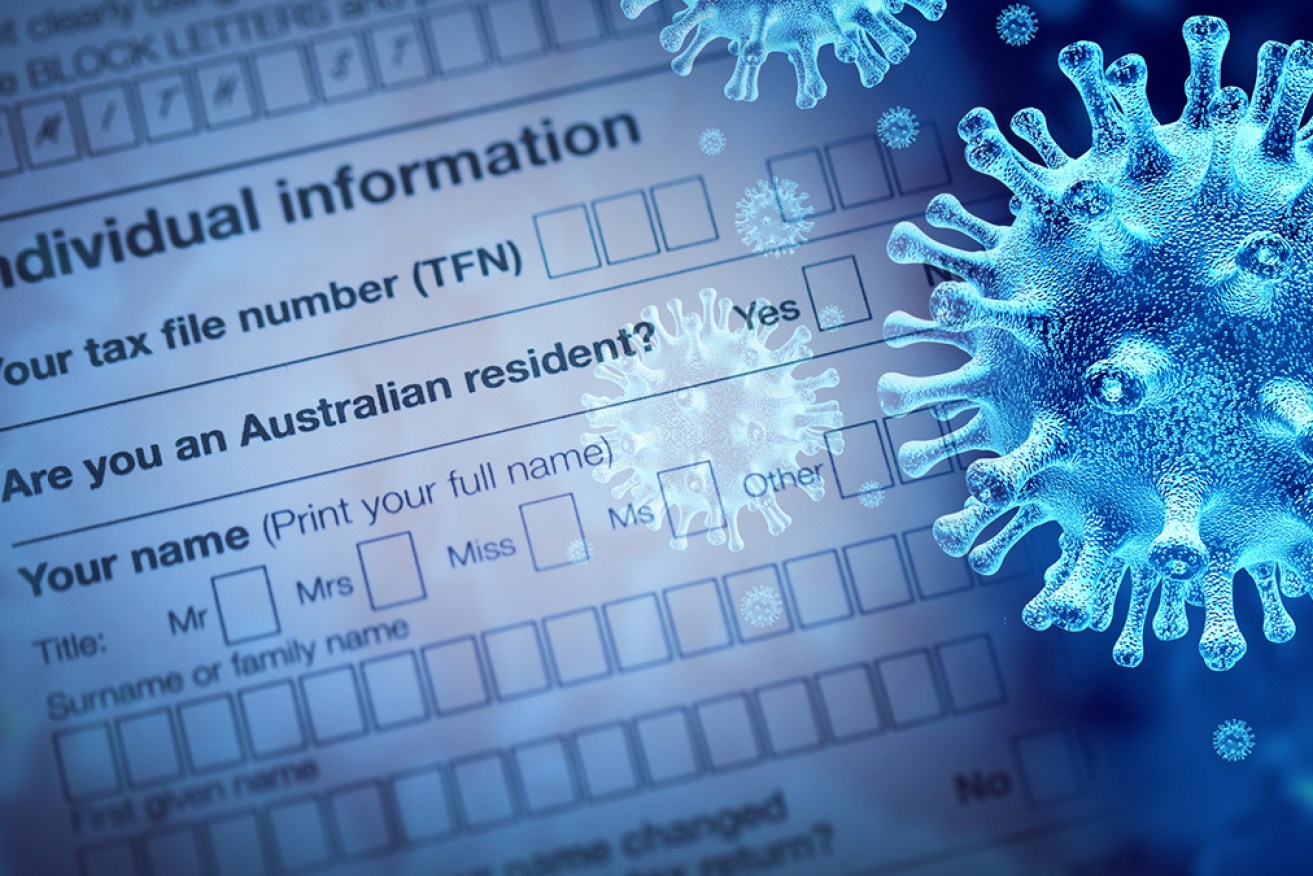Tax tips: How the coronavirus can help you get a larger refund


Coronavirus will affect our tax returns in several key ways. Photo: Getty/TND
The coronavirus pandemic has shifted the way we conduct our personal finances, and with June creeping up, tax time is no exception.
Strict social distancing measures have forced millions of Australians to work from home for the first time, throwing up a raft of new deductions.
Mozo.com.au consumer advocate Tom Godfrey told The New Daily sifting through records of expenses can help workers uncover surprising work-related costs to boost their tax refund.
So how has the coronavirus changed the way we conduct our taxes?
The New Daily tackles some key questions.
My employer asked me to work from home. What can I claim?
The ATO has two methods to claim working from home expenses, but choosing the right option depends on how much bookkeeping has been done during lockdown.
For workers who are unable to apportion their expenses between work-related and private use, or haven’t kept records to substantiate claims, the ATO has introduced a ‘shortcut’ method to make things easier.
That method amounts to 80 cents per hour, and taxpayers should ensure the amount of hours logged matches hours agreed with their employer.
However, those who permanently work from home, or kept paperwork of internet and mobile usage and receipts for stationery and new office equipment, can calculate their actual expenses.
H&R Block’s director of tax communications Mark Chapman said this normally produces a larger tax refund, but workers can run into problems if their records are not up to scratch.
“Sitting down and working out the proportion of your electricity bills and other home expenses that are specifically work-related can be difficult and time consuming,” Mr Chapman told The New Daily.
My hours changed because of coronavirus. Can I claim tax back from the ATO?
Workers who lost jobs or had hours slashed by their employer may be eligible for a larger tax refund.
Prior to the outbreak, employers applied tax to their employees’ pay assuming they would be employed in the same capacity over the 2019-20 financial year.
If the number of hours dropped during the lockdown through reduced hours or joblessness, workers could be entitled to a larger refund.
“If your salary’s reduced, chances are your PAYG statement will show you have moved into another tax bracket, if the income lost is substantial enough,” finder.com.au managing editor Kate Browne told The New Daily.
I’ve been receiving JobKeeper or JobSeeker. Does this affect my tax return?
Both the $1500-a-fortnight JobKeeper wage subsidy and fortnightly $1100 JobSeeker payments are part of a person’s taxable income and need to be reported to the ATO.
For Australians on JobKeeper, their employer should have already noted those payments on their PAYG summary.
And Australians on JobSeeker should receive an income statement from Centrelink outlining how much they have received, which needs to be lodged when filling out their tax return.
I own a property but my rental income’s fallen. How am I affected?
Last year, the Australian Taxation Office singled out property investors for overzealous rent deductions, with roughly 90 per cent of rent reduction claims containing an error.
And with the pandemic pushing down rents and driving up vacancy rates, the ATO told The New Daily it will be particularly vigilant this year.
Mr Chapman said landlords who retain tenants (regardless of the amount they pay) can claim expenses on loan interest and management fees, even if they incur a net rental loss.
According to the ATO, those property owners may claim the full amount of their expenses “against your rental and other income – such as salary, wages or business income.”
However, Mr Chapman sounded the alarm for property owners who now live in their rental properties.
“If you made your home your base in lockdown, you would not be able to claim deductions for that period, as it’s become a property for your own personal use,” Mr Chapman said.
What else can I do to maximise my refund?
Investors who sold non-performing shares or managed funds may be able to use capital loss from those sales to reduce the amount of tax paid on capital gains.
And superannuation accounts can also help lower an overall tax bill.
“If you’re receiving a regular pay check, making additional personal super contributions can allow [you] to claim tax deductions,” Mr Godfrey said.
Australians can also make claims on:
- Gifts or donations that have ‘deductible gift recipient’ status
- Work-related expenses (such as courses, travel and equipment) that were not covered by their employer
- The cost of preparing their tax return.








